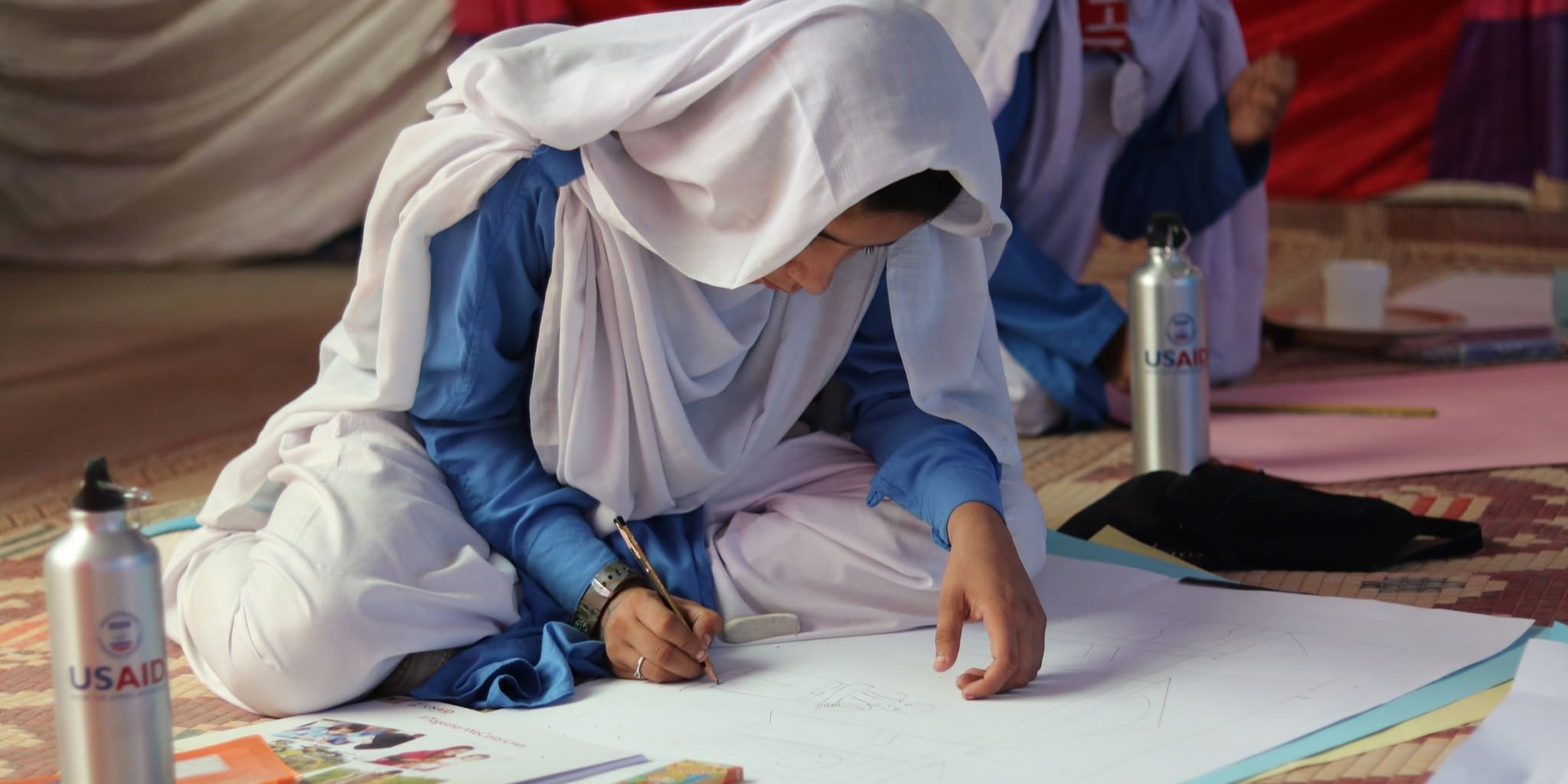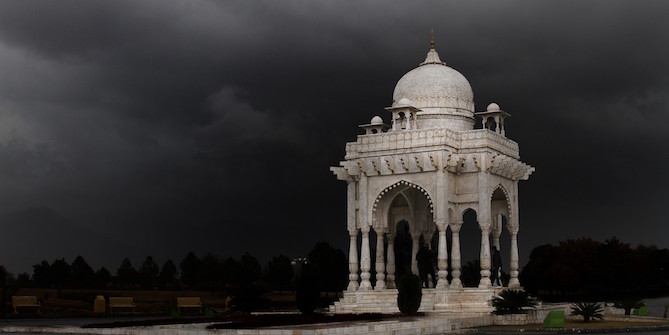Jacinda Ardern’s response to the Christchurch tragedy may be a turning point in generating and recalibrating positive intercommunal relationships argues Sarah Ashraf (Institute for Strategic Dialogue)
Last month’s mass shooting in New Zealand, the deadliest such attack in its modern history claiming fifty innocent lives amongst at least as many injured, marks the coming of age of the insidious global far-right. The 74 page manifesto proudly e-brandished by the attacker set out his overarching motivations and aspirations clearly. Claiming to fight for the emancipation of a ‘white’ European culture from brown ‘invaders’ that threaten its ethnic purity with increasing migration and procreation, the attacker rationalised the indiscriminate slaughter of Muslim worshippers, ranging between 2-71 years of age, at their most vulnerable.
In the aftermath of the shooting, however, a few individuals have quite spontaneously played what may be a pivotal role in managing and mitigating its wider impact. On one hand Prime Minister Jacinda Ardern’s timely and pragmatic response to the tragedy saw her personally reaching out to the families of the victims by ‘voicing the grief of a nation’ (her words) beyond the common, clichéd ‘thoughts and prayers’ rhetoric. The empathy and emotion with which she publically connected with the close-knit community in Christchurch reverberated across social media to touch many in Muslim communities across the world.
Perhaps even more importantly, Ardern’s actions enabled moderating voices within Muslim communities and intelligentsia both online and offline, to finally be heard and gain traction. Having for decades borne collective guilt and censure for every act of terror or violence committed by individuals in the name of their faith, Muslims across the world responded to Ardern’s actions with an almost palpable sense of relief and appreciation.
 Photo: Interfaith Vigil for the Christchurch Shooting Victims | Credit: Flickr
Photo: Interfaith Vigil for the Christchurch Shooting Victims | Credit: Flickr
It is however the understated yet poignant reaction from family members of the victims that need to be amplified even more at this time of high communal stress and fear. Farid Ahmad, the wheelchair-bound husband of one of the victims simply forgave the murderer saying that he did not bear him any grudge: ‘I will tell him that inside him he has great potential to be a generous person, to be a kind person, to be a person who would save people, save humanity rather than destroy them,’ he said despite the deep grief in his eyes.
Ambreen Naeem, wife of the hero who died in a hail of bullets whilst trying to overpower the shooter, also lost her 21-year old son. She too expressed pity and not hate for the murderer, adding ‘my husband and son gave up their lives to save other people and this is what Islam is to us. It’s a religion of peace and love’. These are the kind of messages that may help in disrupting the inadvertent transition from fear to anger and from grief to hate for vulnerable members of affected communities at times like these.
For prominent members of Muslim communities, such responses epitomise the value of moderation – what is frequently referred to in the Quran as meezan or balance (Al-Rahman, verse 7-9) – and its potential role in fostering inter- as well as intra-communal dialogue and countering hateful narratives emerging from within. The openings that have been created for a more rational and conciliatory communal discourse in the wake of this tragedy must not be sequestered by petty politicking and short-sighted populism – and the onus lies as much on the Muslim community as it does on the wider socio-political systems they are situated within.
At the same time, Christchurch has laid bare many of the presumptions that problematise the interface between, in fact even the definition of, racism and Islamophobia in the western world. The idea that the Islamic faith itself is a problem stems from a broader, more insidious sentiment projected by prominent members of Western intelligentsia with millions of followers who may be invariably and formatively influenced by them. Calling Islamophobia a ‘word created by fascists’ (Jordan Peterson), an ‘intellectual blood libel’ (Sam Harris), ‘a nonsense term’ (Douglas Murray) serves to deny the increasingly dynamic agency of the international far-right, also the far-left, and obscures the role it has to play in mainstreaming anti-Muslim, often anti-immigrant, rhetoric and abuse.
In the wake of Christchurch therefore it has become even more important to acknowledge that Islamophobia is no longer a fringe movement – it has moved definitively into the mainstream and must be tackled as such. The challenges of constraining hate speech, which can spontaneously fuel offline violent incidents, are compounded by the increasing online dexterity of members of far-right groups. In the UK the number of extreme right wing individuals receiving support since 2012-13, has increased almost 300%, while the number of Islamist extremists has increased by 80% (BBC News, 2019).
Unsurprisingly, even though tech-policing has in recent years become increasingly adept at at picking up, isolating and taking out extremist Islamist materials, it has yet to achieve the same level of providence with regards to far-right movements and this must now be a critical priority. After the Christchurch shooting, YouTube’s chief product officer, Neal Mohan, attested to the difficulty of monitoring and therefore limiting the proliferation of hate incidents, which are ‘designed for going viral,’ and outsmarting the company’s detection systems. He confessed that as quickly as one video per second appeared in the hours after the shooting, even as his team of incident commanders removed different versions of the original footage.
Ultimately, it is clear that an obsession with racial and cultural superiority underpinning extremist movements across the globe – Islamist, far-right and far-left – gear towards undermining the idea of functional diversity that is so imperative for social cohesion in contemporary times. According to London’s Mayor Sadiq Khan, the view that it is ‘incompatible to have western liberal values and to practise the faith of Islam’ fuels hate and violent extremism against Muslim communities globally. On other hand, the Christchurch tragedy and Ardern’s response in particular, has epitomised how positive, substantive actions of an empathetic political leadership can work in tandem with moderating voices from within the Muslim community to create a viable basis for intercommunal dialogue in a modern multi-ethnic, multi-faith and multicultural society. That one lesson, if adopted by other leaders, could yield enormous dividends.
This article gives the views of the author, and not the position of the South Asia @ LSE blog, nor of the London School of Economics. Please read our comments policy before posting. Photo Credit: Tim Dennell, Flickr
Dr. Sarah Ashraf is a Research Manager at ISD. She has over 10 years’ experience in managing, gathering and analysing sensitive material with regards to insurgency, counter-insurgency, extremism, transnational jihadism and ideological underpinnings of various forms of radicalism. She tweets @SarahAshraf01






